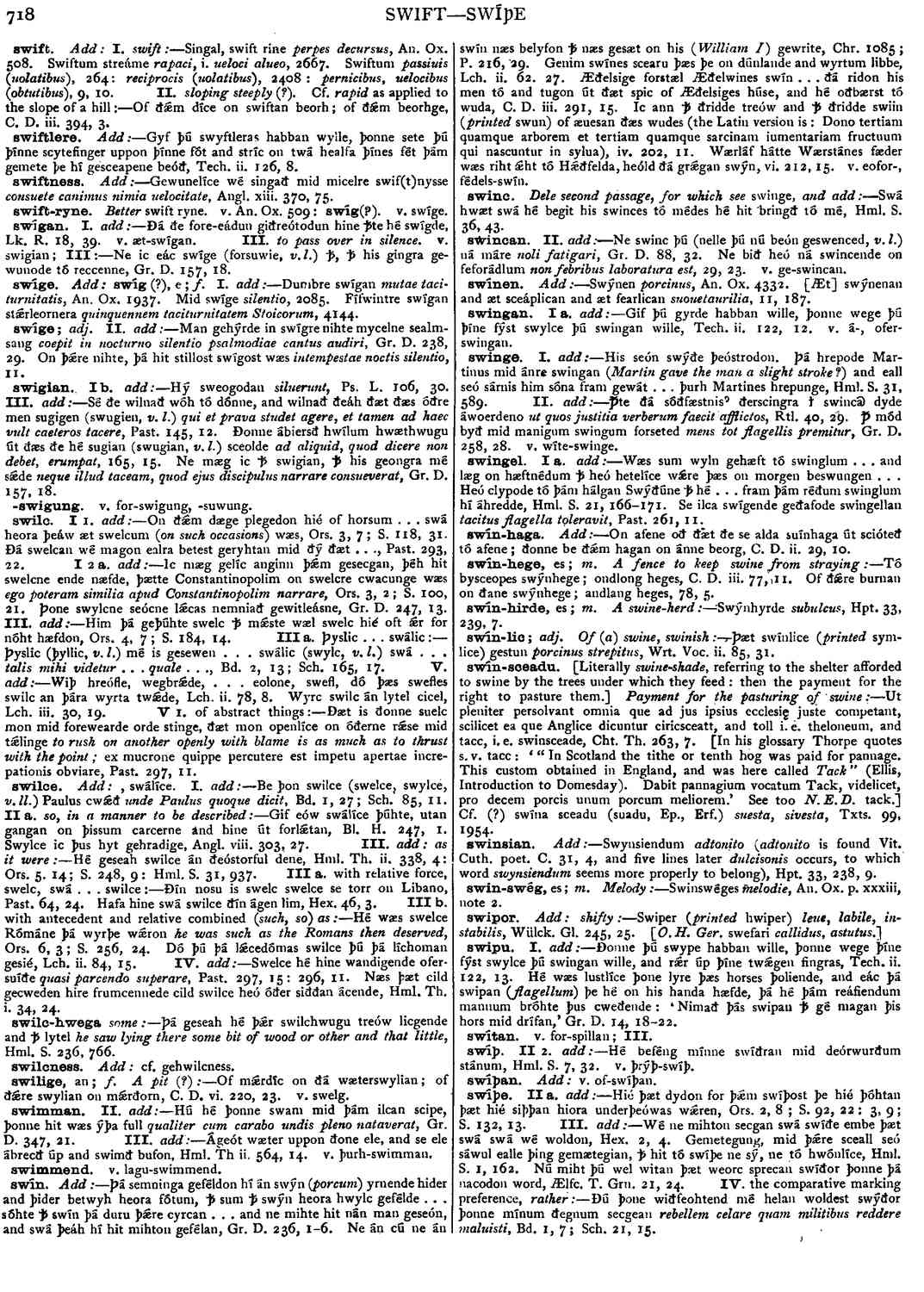swín
-
Þá semninga geféldon hí án swýn (
porcum
) yrnende hider and þider betwyh heora fótum, ꝥ sum ꝥ swýn heora hwylc gefélde ... sóhte ꝥ swín þá duru þǽre cyrcan ... and ne mihte hit nán man geseón, and swá þeáh hí hit mihton gefélan,- Gr. D. 236, 1-6.
-
Ne án cú ne án swín næs belyfon ꝥ næs gesæt on his (
William I
) gewrite,- Chr. 1085; P. 216, 29.
-
Genim swínes scearu þæs þe on dúnlande and wyrtum libbe,
- Lch. ii. 62. 27.
-
Æðelsige forstæl Æðelwines swín ... ðá ridon his men tó and tugon út ðæt spic of Æðelsiges húse, and he oðbærst tó wuda,
- C.D. iii. 291, 15.
-
Ic ann ꝥ ðridde treów and ꝥ ðridde swiin (
printed
swun) of æuesan ðæs wudes (the Latin version is: Dono tertiam quamque arborem et tertiam quamque sarcinam iumentariam fructuum qui nascuntur in sylua), iv.- 202, 11.
- Wærláf hátte Wærstánes fæder wæs riht ǽht tó Hǽðfelda, heóld ðá grǽgan swýn, vi. 212, 15. v. eofor-, fédels-swín.
Bosworth, Joseph. “swín.” In An Anglo-Saxon Dictionary Online, edited by Thomas Northcote Toller, Christ Sean, and Ondřej Tichy. Prague: Faculty of Arts, Charles University, 2014. https://bosworthtoller.com/58889.
Checked: 0